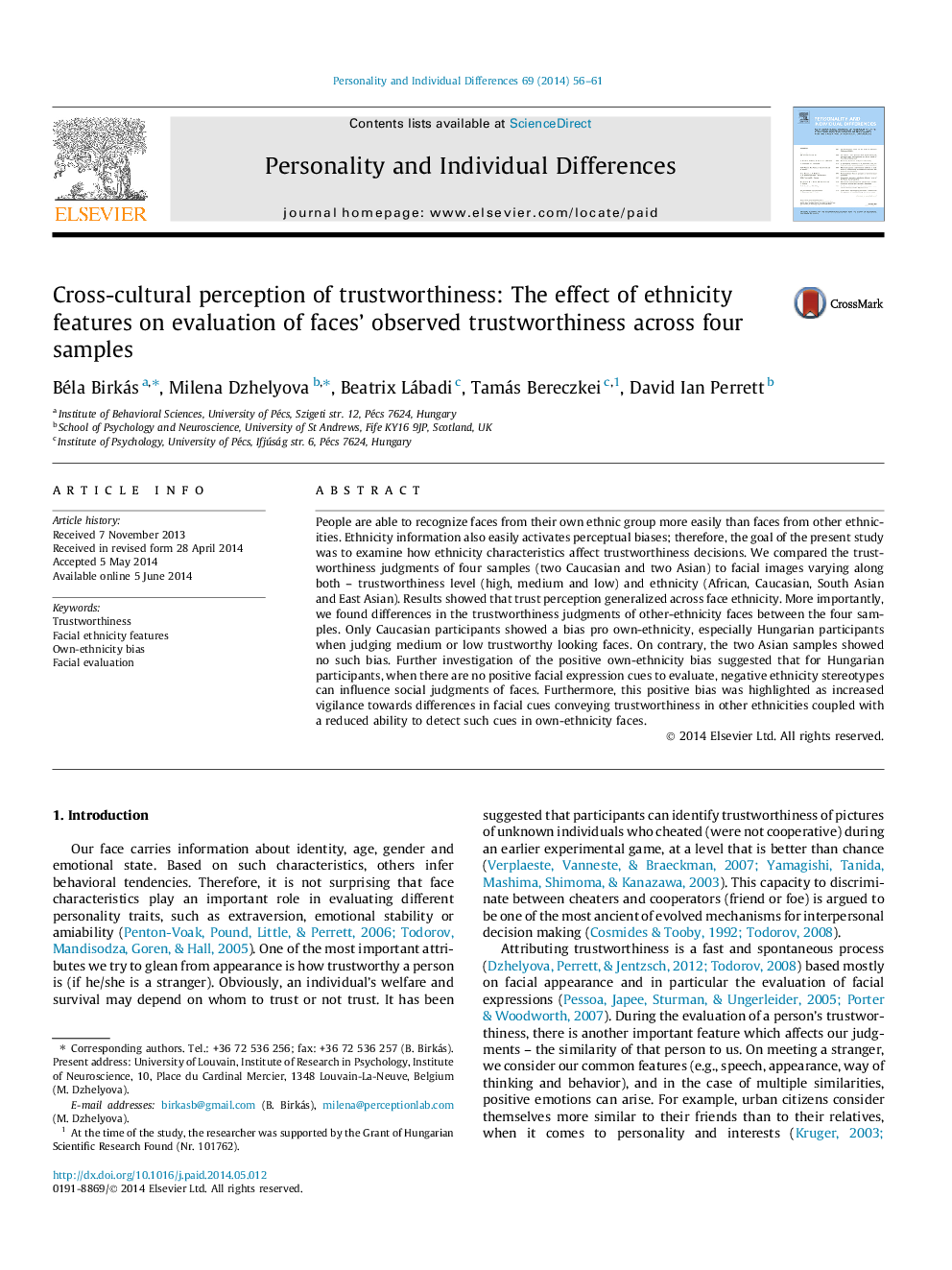| Article ID | Journal | Published Year | Pages | File Type |
|---|---|---|---|---|
| 890404 | Personality and Individual Differences | 2014 | 6 Pages |
•We examined the effect of facial ethnicity feature on trustworthiness decisions.•Stimuli: Caucasian, African, East and South Asian faces with varying trustworthiness.•Trustworthiness was rated similarly for faces of different ethnicities.•Yet, there were differences in trustworthiness evaluation among the four samples.•Hungarians were biased toward their own-ethnicity for medium/low trustworthy faces.
People are able to recognize faces from their own ethnic group more easily than faces from other ethnicities. Ethnicity information also easily activates perceptual biases; therefore, the goal of the present study was to examine how ethnicity characteristics affect trustworthiness decisions. We compared the trustworthiness judgments of four samples (two Caucasian and two Asian) to facial images varying along both – trustworthiness level (high, medium and low) and ethnicity (African, Caucasian, South Asian and East Asian). Results showed that trust perception generalized across face ethnicity. More importantly, we found differences in the trustworthiness judgments of other-ethnicity faces between the four samples. Only Caucasian participants showed a bias pro own-ethnicity, especially Hungarian participants when judging medium or low trustworthy looking faces. On contrary, the two Asian samples showed no such bias. Further investigation of the positive own-ethnicity bias suggested that for Hungarian participants, when there are no positive facial expression cues to evaluate, negative ethnicity stereotypes can influence social judgments of faces. Furthermore, this positive bias was highlighted as increased vigilance towards differences in facial cues conveying trustworthiness in other ethnicities coupled with a reduced ability to detect such cues in own-ethnicity faces.
